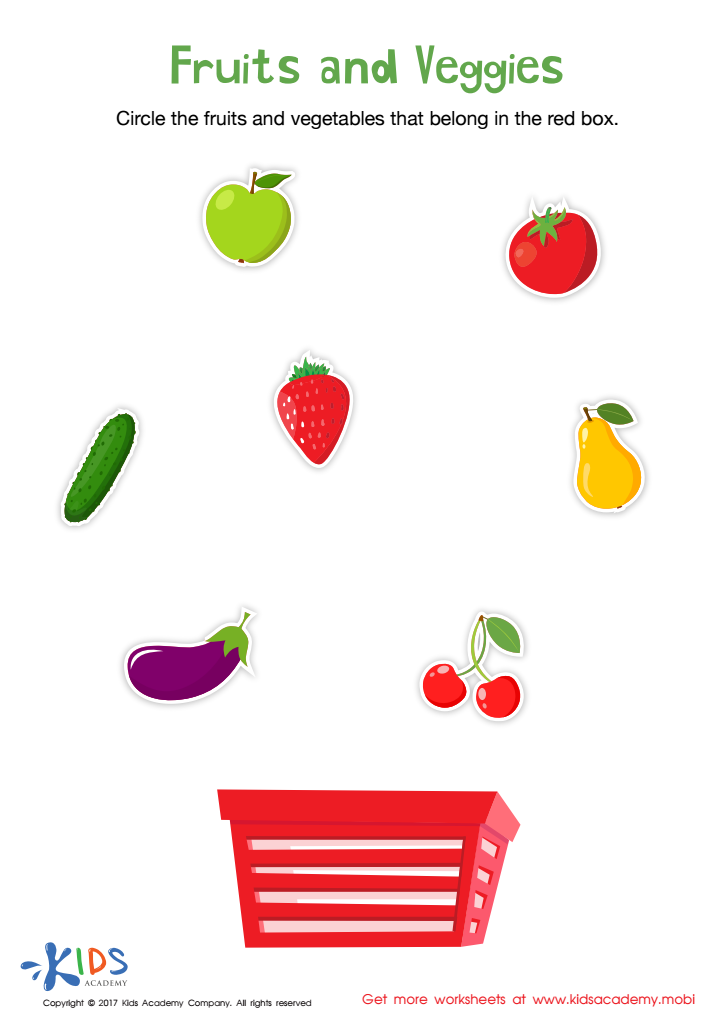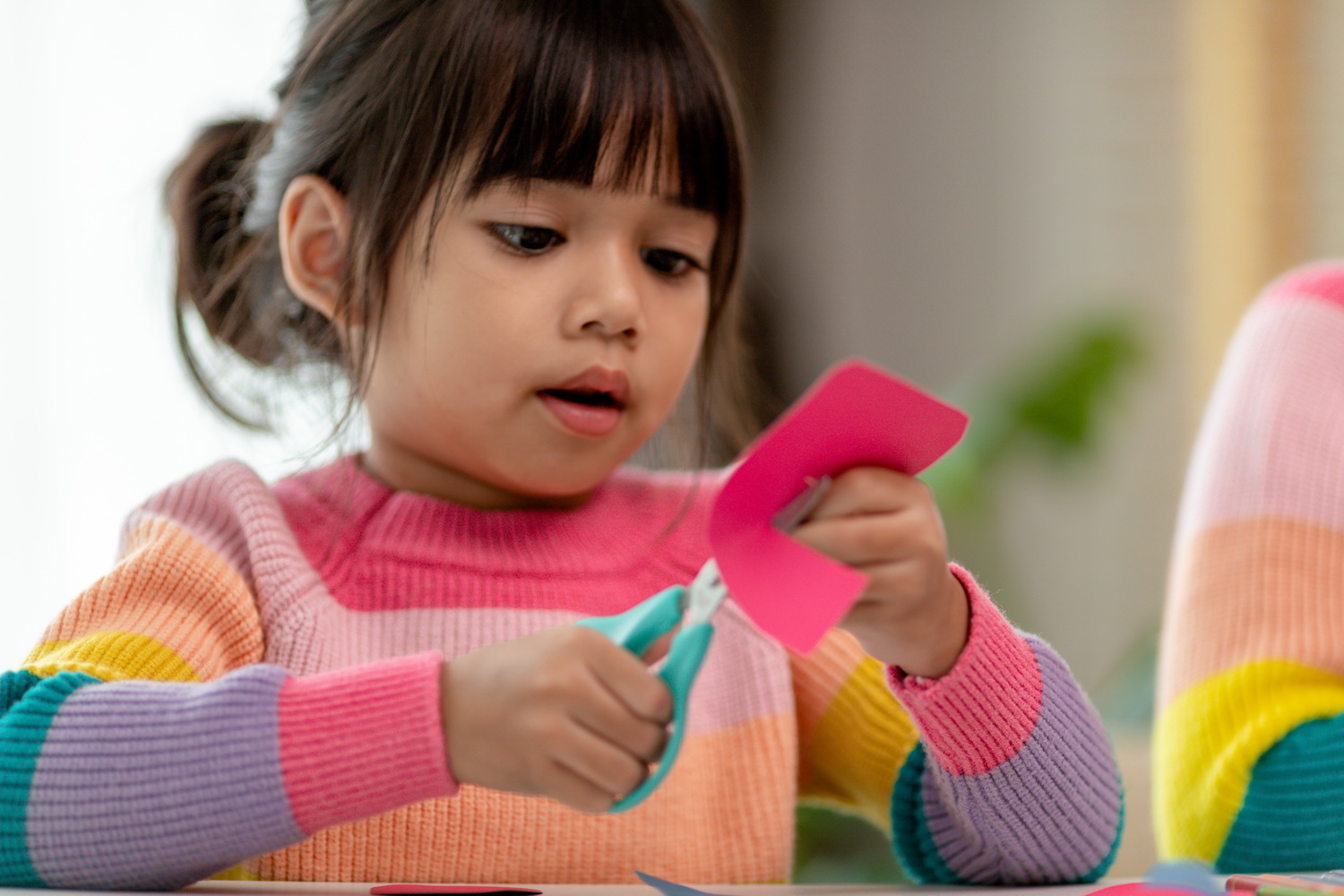Sorting skills Math Worksheets for 6-Year-Olds
11 filtered results
-
From - To
Boost your child's early math skills with our interactive Sorting Skills Math Worksheets designed specifically for 6-year-olds! These engaging worksheets help children learn to categorize and group objects based on various attributes, such as color, shape, and size. Sorting is a fundamental skill that fosters logical thinking and enhances problem-solving abilities, laying a strong foundation for more advanced math concepts. Our worksheets are crafted with vibrant illustrations and age-appropriate challenges to keep young learners motivated. Explore these resources to make learning fun and effective, guiding your child towards mastering essential sorting skills in a playful and supportive environment!
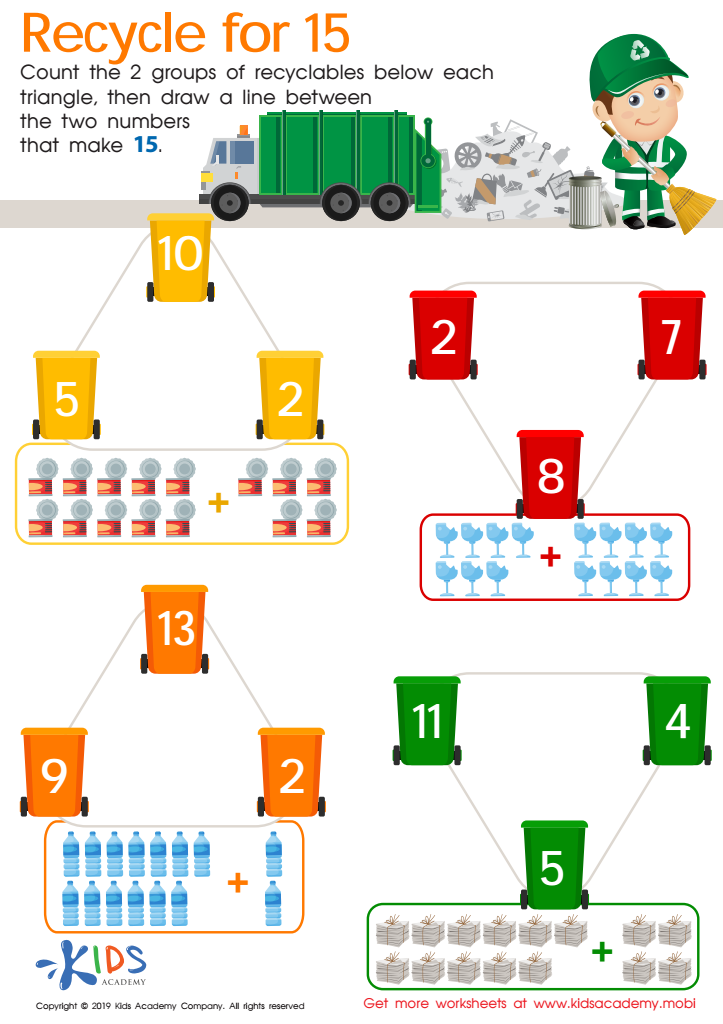

Recycle for 15 Worksheet
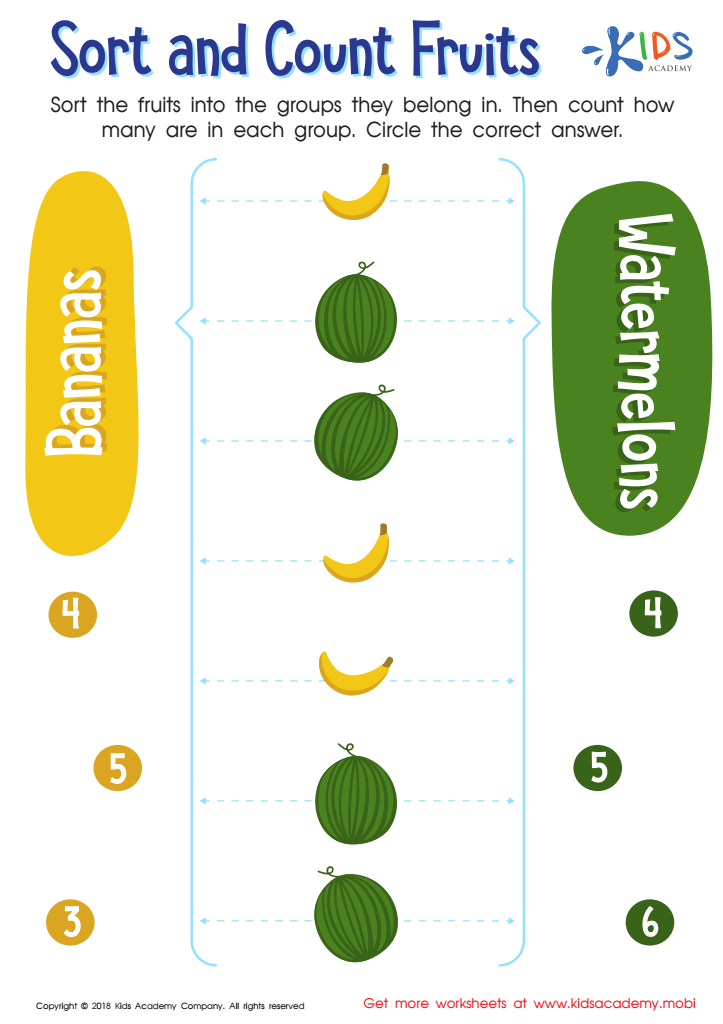

Sort and Count Fruits Worksheet


Sort and Count to the Moon Worksheet
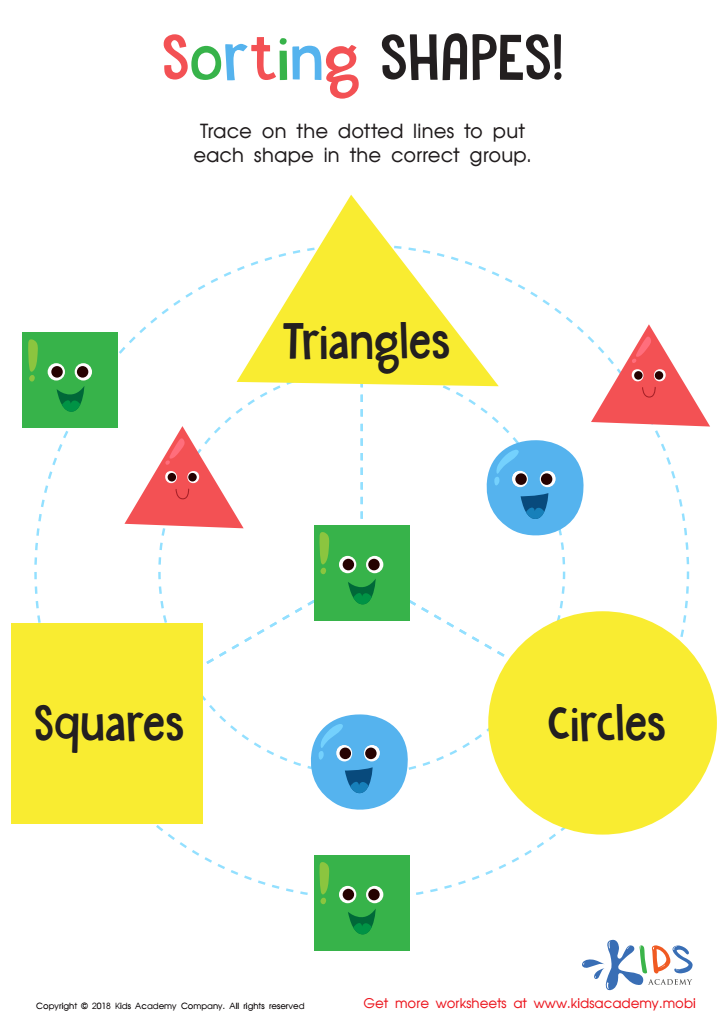

Sorting Shapes - Part 3 Worksheet
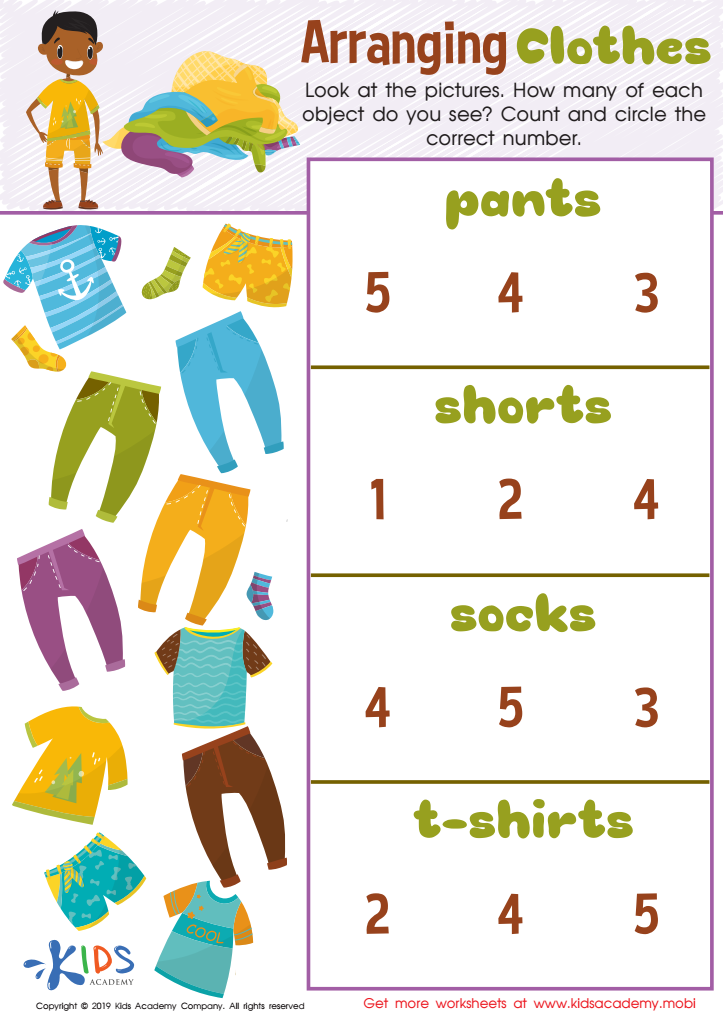

Arranging Clothes Worksheet
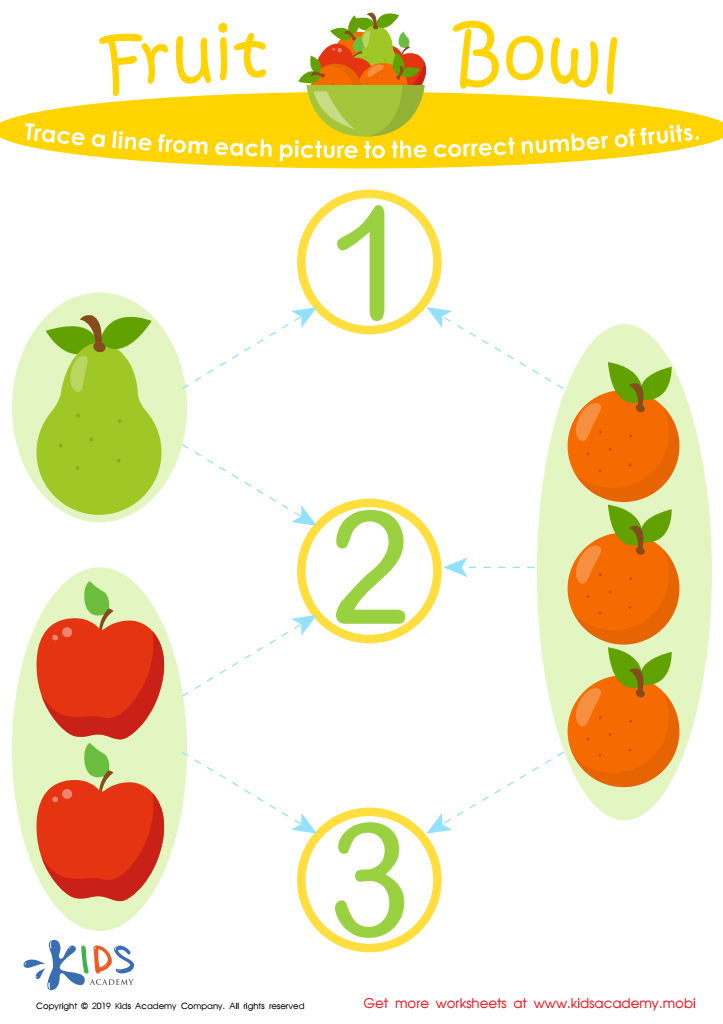

Fruit Bowl Worksheet
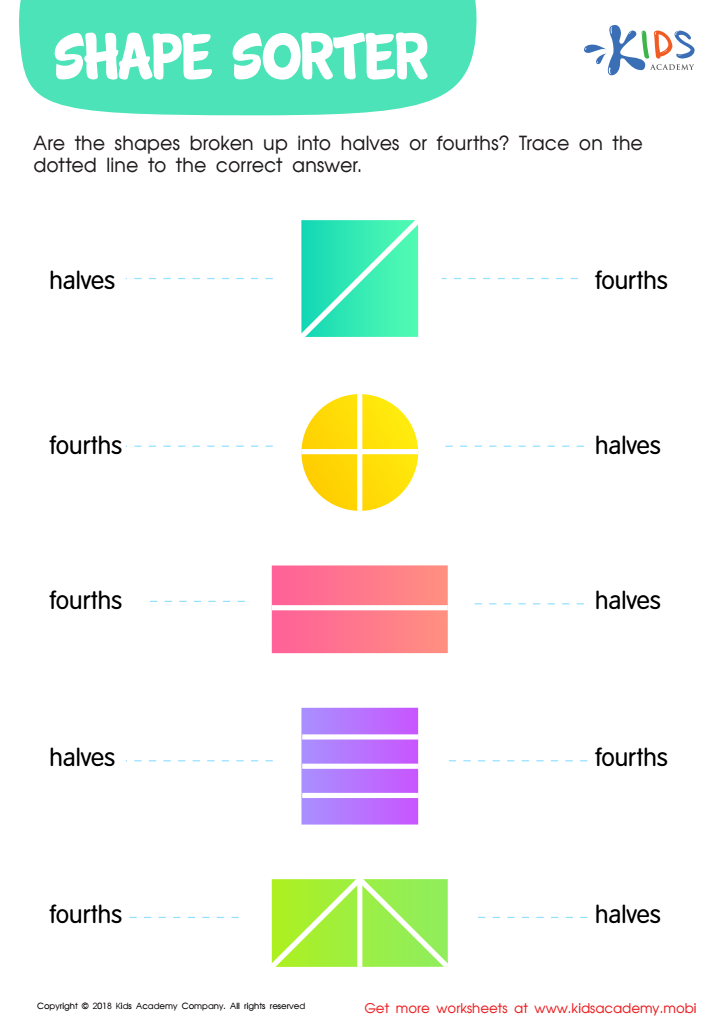

Shape Sorter Worksheet
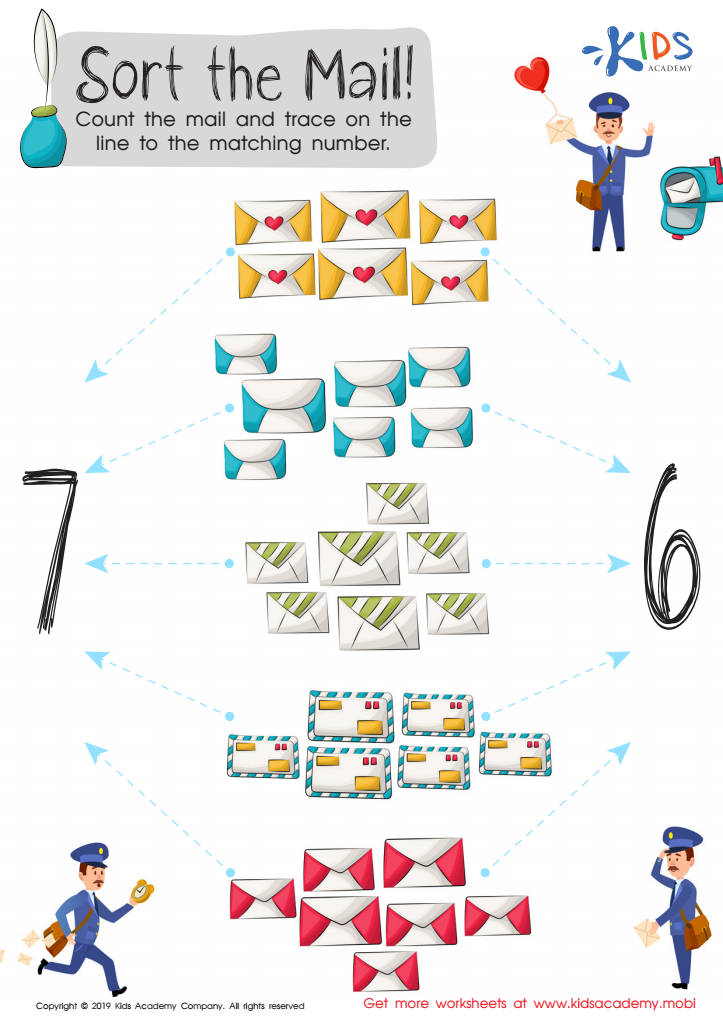

Sort the Mail Worksheet
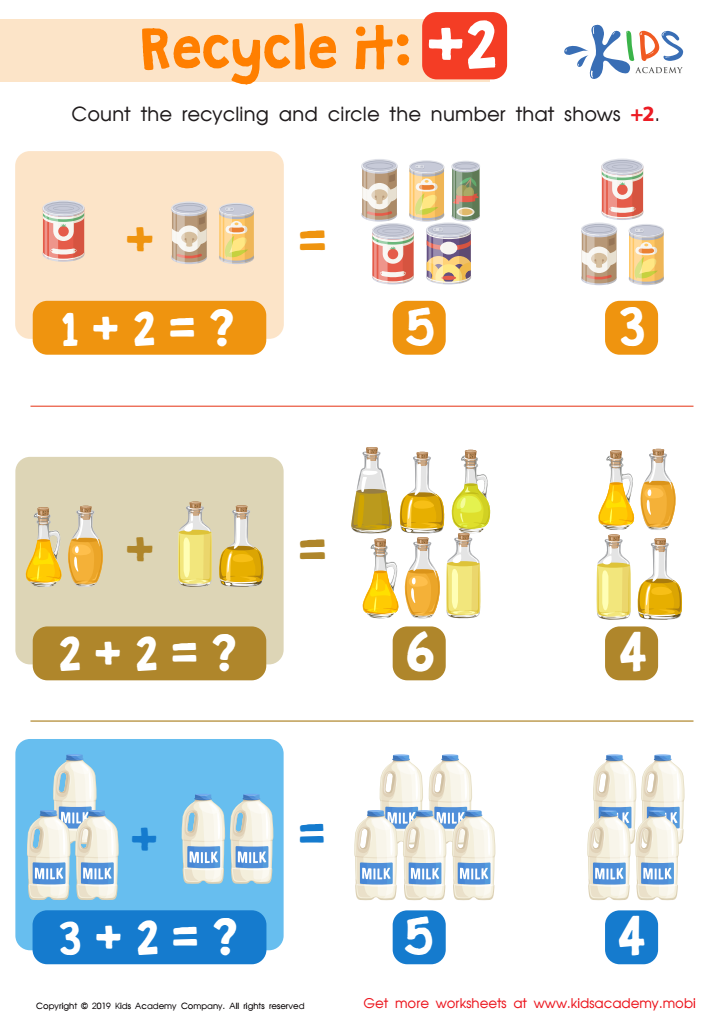

Recycle It: +2 Worksheet
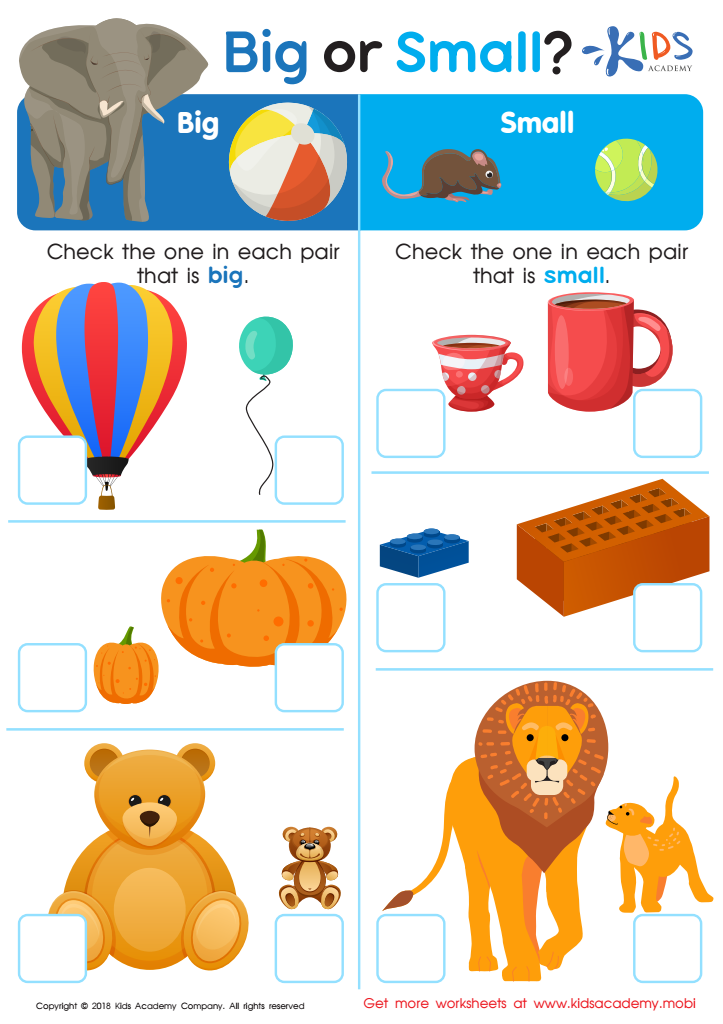

Big or Small? Worksheet
Sorting skills in math are fundamental for 6-year-olds as they lay the groundwork for critical thinking and problem-solving abilities. At this age, children are naturally curious, and teaching them how to categorize and sort items—whether by size, color, shape, or other attributes—can significantly enhance their cognitive development. These skills help foster organizational abilities, which are essential for more complex mathematical concepts later on, like classifying groups and understanding patterns.
Moreover, sorting encourages children to observe and make connections between different objects, facilitating a deeper understanding of their environment. It serves as an introductory experience to data handling, as they learn to group similar items and analyze characteristics. Parents and teachers can use sorting activities to reinforce language skills, as children articulate their reasoning about how they categorize items.
Additionally, sorting tasks often foster social interactions, as children sort with peers and discuss their choices. This collaboration helps in developing social skills and communication, crucial for their overall growth. Thus, emphasizing sorting skills in early education is vital not only for math readiness but also for enhancing children's broader developmental skills—academically, socially, and emotionally.
 Assign to My Students
Assign to My Students


